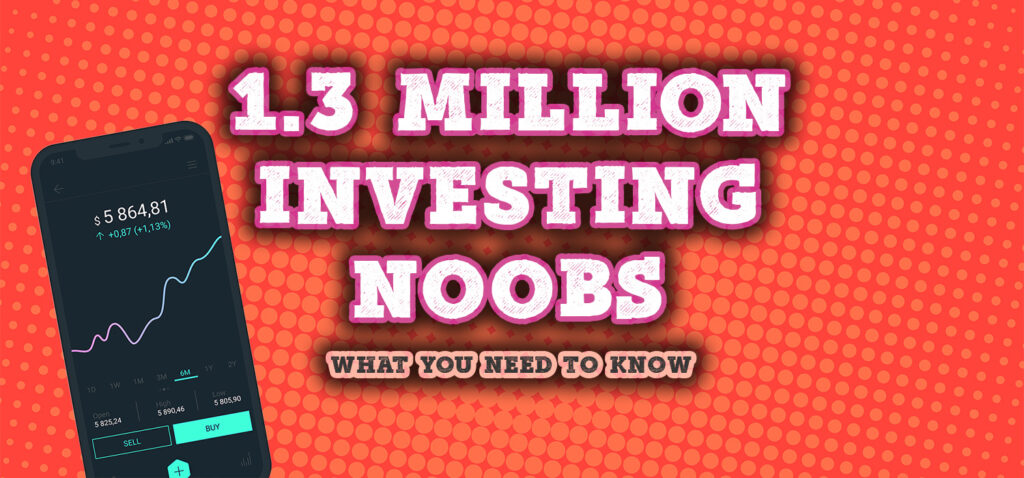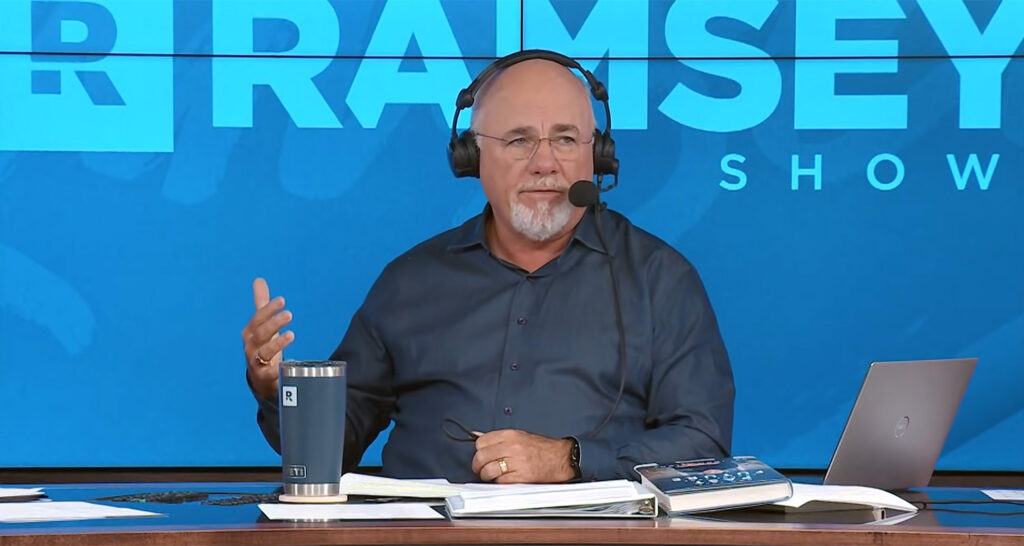Lifetime ISAs (LISAs)
Find the best Stocks & Shares Lifetime ISAs & Cash Lifetime ISAs
Updated: 27th May 2021
Best Investment LISAs
Best Cash LISAs
Sections
What Is A Lifetime ISA?
A Lifetime ISA (LISA) is an account designed to be used for long-term saving or investing. The account can be accessed penalty free when buying a home (first-time buyers only) or at retirement (age 60).
A LISA provides all the same tax efficient benefits as a standard ISA, but the government will also top-up any deposits you make by 25% giving your LISA an immediate boost.
A LISA can be opened by anyone (UK residents only) aged between 18 and 39 but you can continue saving or investing into a LISA until you’re 50.
You can deposit £4,000 a year in it, and you will receive the 25% bonus on top – that’s a chunky £1,000 of free cash annually if you max-out the allowance. Any interest, dividends or investment gains/losses do not count towards your deposits.
How The Lifetime ISA Works
1.
You get a 25% bonus each tax year on up to £4,000
- The maximum you can deposit each tax year into a LISA is £4,000. The government will add a 25% bonus to your savings, up to a maximum of £1,000 per year. For example, if you contribute £200 a month (total £2,400) you will receive a bonus of £600 for the year.
- You only get the bonus on contributions. You won’t receive a bonus on any cash interest, dividends, or investment gains earned.
- Once the bonus has reached your account it is treated like the rest of your money, so you can save or invest it as you would your own.
2.
You must be aged 18 or over but under 40 when you open a Lifetime ISA
- A LISA can be opened by anyone (UK residents only) aged between 18 and 39.
- You can only contribute to your LISA until the day before your 50th birthday. Once you’re 50 or over you’ll continue to get interest, dividends or investment gains (or losses) on the amount already saved, but you won’t be able to pay in any more.
Even if you don’t think you want a LISA right now it might be worthwhile opening one and contributing £1. At least this way, if you later change your mind, you can continue contributing until you’re 50.
3.
Withdraw money tax-free to buy your first home, and/or from age 60
You can withdraw money from your Lifetime ISA if you’re:
- buying your first home
- aged 60 or over
- terminally ill, with less than 12 months to live
It’s important not to just withdraw the money. You must first complete a declaration form, which your LISA provider can provide. Your conveyancer will receive the money and confirm that the funds have been used for the house purchase.
If you are terminally ill, you will need to contact your LISA provider first.
4.
You’ll pay a penalty if you withdraw the cash and don’t use it for a first home or retirement
Outside of these LISA withdrawal rules you can take some or all of your cash out – but you will be charged 25% of the amount withdrawn (also known as making an unauthorised withdrawal).
First-Time Buyers: Lifetime ISA Need-To-Knows
The Lifetime ISA is a great savings vehicle for building a deposit for your first home. Unfortunately, they’re not very straightforward, so you need to be careful that a LISA is suitable for your needs. You can use the savings in your LISA to help you buy your first home if all the following apply:
1.
The property costs £450,000 or less
This maximum property value is likely to exceed the cost of a typical first home purchase. However, for some people, particularly in London, this maximum might actually be too low, in which case you couldn’t use a LISA. You would have to incur the 25% penalty as a ‘unauthorised withdrawal’ to access the money.
Moreover, house prices tend to rise over time. Your dream first home might currently be under £450,000 but will it still be in a few years’ time when you’re ready to buy?
2.
You’re a first-time buyer
You can never have owned a property before anywhere in the world. Even if you previously owned a property, sold it due to a relationship breakup, and have been renting for the past 5 years, you are still not a first-time buyer unfortunately. Neither are you a first-time buyer if you have owned a buy-to-let property.
3.
You must have first contributed to the LISA at least 12 months prior to buying the property
You won’t be able to open an account, get the bonus, and buy a property all within a few months – nice try. If you need to buy within a year, then the LISA scheme isn’t the right savings vehicle for you.
As mentioned earlier in this guide, even if you have no immediate plans to buy a property it might be worth opening a LISA asap with just £1 just to get the clock ticking (assuming you plan to buy later than 1 year from now).
4.
Must use a solicitor/conveyancer and a mortgage
The LISA provider will pay the funds directly to your solicitor. You will also have to use a residential mortgage (so not buy to let). There is no minimum mortgage amount stipulated by the LISA rules, but most lenders have a minimum lending amount, which is often £20,000 or more.
5.
Buying as a couple? Each buyer can have a LISA
A LISA is a Lifetime Individual Savings Account. These are not joint accounts, but each buyer can have their own – essentially doubling the bonus. The £450,000 property limit does not change though!
If you’re a first-time buyer and the person you’re buying with is not, you can still use your LISA towards the house purchase.
Retirement Savers: Lifetime ISA Need-To-Knows
The LISA might not be the most popular retirement savings vehicle, but it does have enough pros to make it worth considering. Unfortunately, there are also some further drawbacks that you should be aware of.
1.
You can only access your LISA funds from age 60
LISAs are not for short-term saving – the purchase of your first home being an exception. LISAs are worth considering if you don’t mind waiting decades to access your money without penalty.
2.
LISA savings will affect your eligibility for benefits
One major drawback (and unlike a pension) is that a LISA will affect your eligibility for state benefits. While you are young you might not think you will ever be on benefits, but there is a long time between now and your 60th birthday during which a lot could change. For instance, you might find yourself out of work for a long period of time through no fault of your own.
In such a scenario you could be forced to make an ‘unauthorised withdrawal’ from your LISA retirement savings and live off those until your savings are down below the means-tested threshold. In doing so you would incur the 25% withdrawal penalty. Similarly, LISAs count as assets in bankruptcy or divorce cases.
3.
Pensions are likely to be better for retirement savings
LISAs are designed to be another way to save for retirement but in most cases a pension works out better.
- You contribute to a LISA with after-tax income and get a 25% bonus added. So, if you pay in £80 you have £20 added. You now have £100 but it only cost you £80.
- With pensions you contribute with pre-tax income. So, as a basic-rate taxpayer, if you pay in £100 it only costs you £80 as you receive tax relief.
Where pensions beat LISAs:
- Higher-rate taxpayers receive more tax relief (40%). So, if you pay in £100 it only costs you £60.
- If you’re employed, your employer will match your workplace pension contributions up to a certain percentage. In most cases, people should use their matched workplace pension before even considering other retirement vehicles.
- If your employer pays you using a ‘salary sacrifice arrangement’ for pension contributions, you get National Insurance (+ student loans if applicable) relief as well as tax relief.
- LISA cannot be accessed until age 60 but pensions can be accessed from 55 (increasing to 58).
- Pensions do not impact your state benefit entitlement but LISAs do. You would be expected to withdraw from the LISA (also incurring the penalty) before you would be entitled to some means-tested benefits.
- In bankruptcy cases, any money in a LISA will be counted as your assets, so you will be likely forced to cash in early. Pensions are usually protected.
Where LISAs beat pensions:
- Any money you withdraw from a LISA in retirement incurs no tax, but for pensions only a 25% lump sum is tax-free. The remaining withdrawals form part of your taxable income, which you pay at your marginal rate (e.g. 20%, 40%, 45%). If we assume that your State Pension will consume most of your personal allowance, most of your private pensions will be taxed on withdrawal.
- If you were prepared to pay the 25% penalty you could access the money in your LISA early, which might be useful in an emergency. Apart from in situations of critical illness or death, you can’t ever take cash out of a pension early.
Frequently Asked Questions
1.
Should you use a Cash LISA or a Stocks & Shares LISA?
There is no right or wrong answer to this question, but generally the longer you plan to keep the LISA the more you should consider the investment type. If you are using a LISA for retirement savings, you almost certainly should be investing.
There is of course no guarantee that your investments wills grow, and you may get back less than what you put in. However, saving in cash long-term will practically guarantee the reduction in buying power of your money due to inflation.
As a rule of thumb, you should only invest if you are planning to invest for more than 5 years and ideally longer. Stock markets are so volatile that any investment period of less than 5 years is putting your money more at risk of falling in value.
2.
How do you invest if you don’t know how?
Investing is not complicated, and you can easily and quickly learn everything you need to know. Our very own YouTube channel and website contains a treasure trove of information that will tell you everything and more.
Do-it-yourself:
In short, you will first need to pick a LISA on a do-it-yourself investment platform. Then, you will probably want to build a portfolio that gets you exposure to global stocks (and maybe bonds – though not for us). This article discusses the very portfolio that we use but this is not financial advice, and if you copy it, you do so at your own risk.
You can even build a diversified global portfolio with just 1 fund, so investing really is as simple as you want to make it. Vanguard index funds/ETFs are extremely low cost, and we would consider using one of these if going down that route:
- Vanguard FTSE Global All Cap Index Fund – Fee 0.23% (ISIN: GB00BD3RZ582)
- Vanguard FTSE All-World UCITS ETF – Fee 0.22% (VWRL)
Do-it-for-me:
Alternatively, you can use a robo-advisor to do everything for you. The bad news is only one robo-advisor currently offers a LISA but fortunately it’s one of our favourites and is competitively priced (see below for details).
A robo-advisor will assess your attitude to risk by asking you a few questions and then assign you to a suitable investment portfolio. They then manage this on your behalf.
While robo-investing platforms are very affordable, they do typically cost a little more than DIY investing platforms. However, the most important thing when investing is not the fees you pay but what overall return you get, so a small premium may be worth paying.
3.
How do you choose a LISA provider?
With Cash LISAs the main decision factor is the interest rate. Go with one of the highest.
With Stocks & Shares LISAs it’s a little complicated because there’s more factors to consider. As only a few investment platforms offer LISAs there’s not really much in the way of choice, but on the plus side it does make picking your Stocks & Shares LISA a whole lot easier.
In a nutshell it boils down to the platform that offers the funds/ETFs/shares that you want, the fees they charge and the quality of their customer service.
See our best investment platform page for a more in-depth explanation for how to pick an investment platform.
4.
Is your money safe in a Lifetime ISA?
In a cash LISA, your savings are usually protected up to £85,000 per financial institution.
With a Stocks & Shares LISA the protection is more complex. You are still covered up to £85,000 per financial institution but you are not covered if your investment does not perform as well as you had hoped.
The Financial Services Compensation Scheme (FSCS) cover financial services firms that have been authorised by the Financial Conduct Authority (FCA) or the Prudential Regulation Authority (PRA) to do business in the UK.
You should always check that the firm has an FCA or PRA authorisation number. Any bank, building society or investment platform worth their salt will make this easily available on their website.
5.
Can you contribute to other ISA types (e.g. Cash ISA / Stocks & Shares ISA) and a Lifetime ISA in the same tax year?
There are a few different types of ISA and they all share the £20,000 ISA limit in the 2021/22 tax year. You are allowed to split this between a LISA (up to the maximum £4,000) and put the remainder in a Cash ISA, Stocks & Shares ISA and/or an Innovative Finance ISA (for peer-to-peer investing) in the same tax year.
For example, you could contribute £4,000 to a LISA, £3,000 to a Cash ISA, and £12,000 to a Stocks & Shares ISA. In this example, you would have £1,000 of your ISA allowance remaining, which could be added to any ISA type except the LISA (as you’ve already maxed-out that particular allowance).
6.
Can I transfer in other existing ISAs to a Lifetime ISA?
This depends on the provider. Most accept transfers in, but some don’t. You can transfer in Cash ISAs, Stocks and Shares ISAs and Innovative Finance ISAs, as well as any previous LISA you may have.
Cash ISAs, Stocks and Shares ISAs and Innovative Finance ISAs are all eligible for the government bonus and will not count against the £20,000 overall ISA limit for the 2021/22 tax year in which the transfer takes place.
However, these transfers do count towards the annual £4,000 Lifetime ISA contribution limit unless the transfer is from another Lifetime ISA.
7.
Can I transfer out to another provider?
Once it’s opened, you’re not locked in – you’re free to transfer it to another provider. Banks and Building Societies chop and change their interest rate regularly, so keep an eye on the best rates and transfer if you want a better deal.
You can withdraw but you will incur a 25% penalty.
8.
How do you claim the bonus and when is the bonus paid?
Your Lifetime ISA manager will claim the bonus from HMRC for you and add it to your Lifetime ISA. You don’t need to claim yourself.
The bonus will be paid monthly and is calculated based on payments you make into your account from the 6th of the month to the 5th of the following month. The time it takes for the bonus to hit your account will vary by provider, but you can expect it to take around two to nine weeks from the date of your contribution.
Our Top Pick Stocks & Shares Lifetime ISAs
Picks and manages investments on your behalf
Nutmeg
A “robo-investor” platform that picks and manages investments on your behalf.
For the investor who wants all the hard work done for them. Nutmeg builds and manages a diversified portfolio for you, using technology to keep charges low and the investment goals personal to you. The portfolios are constructed from diversified ETFs.
Nutmeg will ask you a series of questions and assign you to a suitable portfolio based on your attitude to risk.
It has four different plans to choose from, with no hidden fees – the cheapest, the “Fixed Allocation” plan, costs 0.45% up to £100k, and 0.25% beyond. There is also a fund fee (average 0.19%), and finally a market spread (average 0.07%).
The “Fully managed” plan, costs 0.75% up to £100k, and 0.35% beyond. Again, there is also a fund fee (average 0.21%), and a market spread (average 0.07%). With the fully managed plan Nutmeg will watch over your investments and make changes whenever they deem it necessary with the goal of outperforming the market.
Which plan is better? Only time will tell. Their track record on the fully managed plan is impressive, returning on average 9.5% per annum in the approx. 8.5 years to April 2021.
For new investors Nutmeg will reduce the platform fee to 0% for 6 months when you sign up via the button below. T&Cs apply.
Key Info
Platform Charge: For the Fixed Allocation plan fees are 0.45% on the first £100,000, then 0.25%
Other Fees: Fund fees average 0.19% and Market Spread averages 0.07% (on Fixed Allocation plan)
Minimum Investment: £100
Transfer Out fee: Free
Bonus Period: First 6 months without platform fees when you sign up via Money Unshackled
* Capital at risk. Tax treatment depends on your individual circumstances and may change in the future. Past performance is not a reliable indicator of future performance.
Comprehensive and low annual % fee
AJ Bell Youinvest
Low percentage account fee, with a wide range of available investments.
The low platform fee of just 0.25% on balances under £250k makes this LISA one of the most competitively priced and might make it of interest for investors who want to pick and manage their own investments.
The enormous investment range of funds, shares, ETFs and investment trusts will give investors plenty of choice. AJ Bell Youinvest have also recognised that choice can often be overwhelming, so you can choose from their curated ‘Favourite Funds’ if you wish. Not only that but they also offer ready-made portfolios if you need help in getting started.
Important information: Capital at risk. AJ Bell Youinvest doesn’t offer advice.
Key Info
Platform Charge: 0.25% on the first £250,000 for funds (see table below for full pricing)
Regular (monthly) Investing Service: £1.50 per deal
Fund dealing: £1.50 per deal
Share and ETF dealing (on-line): £9.95 per deal
Minimum Investment: £500 (or £25 per month)
Transfer Out fee: No charge
Range: Over 2,000 funds, plus UK and global stocks, Investment Trusts, and ETFs
Comprehensive and no dealing charges for funds
Hargreaves Lansdown
Comprehensive and no dealing charges for funds.
Hargreaves Lansdown is the largest investment platform in the UK with assets under management of around £120 billion and 1.5 million clients. They also regularly top customer service polls.
The annual platform fee is on the high end for a do-it-yourself platform at 0.45% but there are no dealing fees on funds. Due to the low annual contribution limit (£4,000) that can be saved in a LISA, the higher platform charge might matter less. With zero fees on fund dealing, you can build a portfolio containing as many funds as you like without being punished by extra fees.
There is a cap on the annual platform charge on shares, ETFs and investment trusts of £45 but the high cost of trading these instruments at £11.95 per trade would make this quite an expensive way to invest.
The enormous investment range will give investors plenty of choice. Hargreaves Lansdown also provide investment ideas, a fund finder tool, stock information and their Wealth Shortlist. The Wealth Shortlist is a curated list of funds selected by their analysts.
Key Info
Platform Charge: 0.45% on the first £250,000 – capped at £45 per year for non-fund holdings (see table below for full pricing)
Regular (monthly) Investing Service: £1.50 per deal
Fund dealing: No Charge
Share and ETF dealing (on-line): £11.95 per deal
Minimum Investment: £100 (or £25 per month)
Transfer Out fee: No Charge
Range: Over 3,000 funds, plus UK and global stocks, Investment Trusts, and ETFs
Our Top Pick Cash Lifetime ISAs
We have ranked the Cash Lifetime ISAs by interest rate paid. Please remember if saving for several years or more cash becomes less valuable as inflation eats away at its buying power. For long-term protection and growth of your money consider investing instead.
| Platform | Minimum Deposit |
Interest Rate | Accepts Transfers | Interest Paid |
|---|---|---|---|---|
| Moneybox | £1 | 0.85% (including a bonus rate of 0.35% for 12 months) Reverts to 0.5% after first 12 months |
Yes, but not from all LISA providers | Monthly |
| Nottingham Building Society | £10 | 0.80% | Yes, but only if you're 18-39 | Annually |
| Paragon Bank | £1 | 0.50% | Yes | Annually |
| Newcastle Building Society | £1 | 0.35% | Yes | Annually |
| Skipton Building Society | £1 | 0.10% | Yes | Annually |
Full Price Comparison Tables
Check the tables below for a summary of the main platform charges for Stocks & Shares ISA providers. Many platforms have overly complicated fees, so for ease you might prefer to choose from our best buys above.
Robo-Advisor Stocks & Shares Lifetime ISA Platforms
| Platform | Welcome Offer With Our Link | Minimum Starting Investment | Platform Fee | Fund Costs | Market Spread | Review |
|---|---|---|---|---|---|---|
| Nutmeg | 6 months with zero platform fee | £100 | Fixed Allocation Portfolio: 0.45% up to £100,000, 0.25% beyond |
Average 0.19% | Average 0.07% | Full Platform Review Here |
| Fully Managed Portfolio: 0.75% up to £100k, 0.35% beyond |
Average 0.21% | |||||
| Smart Alpha Portfolio: 0.75% up to £100k, 0.35% beyond |
Average 0.18% | |||||
| Socially Responsible Portfolio: 0.75% up to £100k, 0.35% beyond |
Average 0.27% |
Do-It-Yourself Stocks & Shares Lifetime ISA Platforms
| Platform | Annual Platform Fee (Funds) | Dealing Fee (Funds) | Annual Platform Fee (Shares/ITs/ETFs) | Dealing Fee (Shares/ITsETFs) | Regular Investing Service | FX Fee | Dividend Reinvestment | Frequent Trading |
|---|---|---|---|---|---|---|---|---|
| AJ Bell Youinvest | 0.25% on £0-£250k 0.10% on £250k-£500k No charge over £500k |
£1.50 | 0.25% on £0-£250k 0.10% on £250k-£500k No charge over £500k (Max: £42 per year / £3.50 per month) |
£9.95 | £1.50 | Dividends: 0.5% First £10k: 0.75% Next £10k: 0.50% Value over £20,000: 0.25% |
£1.50 | Shares: £4.95 where there were 10 or more online share deals in the previous month |
| Hargreaves Lansdown | 0.45% on £0-£250k, 0.25% on £250k-£1m, 0.10% on £1m-£2m, No charge over £2m |
FREE | 0.45% (Max: £45 per year) | £11.95 | £1.50 | First £5,000: 1.00% Next £5,000: 0.75% Next £10,000: 0.50% Over £20,000: 0.25% |
1% (min £1, max £10) |
10-19 deals: £8.95 20 or more deals: £5.95 |
Other Stocks & Shares Lifetime ISA Platforms
| Platform | Minimum Deposit | Monthly Fee | Annual Platform Fee | Annual Fund Costs | Notes |
|---|---|---|---|---|---|
| MoneyBox | £1 | £1 (Free for the first 3 months) | 0.45% | 0.12% - 0.30% (incl transactions) | Monthly Fee covers all investment accounts |
| OneFamily | £25 direct debit, or £250 lump sum. | No Charge | 1.17% - 1.20% | Included in platform fee | |
| Foresters Friendly Society | £500 (or £50 per month). Then £250 top ups | No Charge | 2.00% | Included in platform fee |
So you know…
Some of the links above are affiliated links and therefore help Money Unshackled stay free to use, as it is tracked to us. If you use these links, they can sometimes result in a payment or benefit to the site. You shouldn’t notice any difference and the link will never negatively impact the product.
Most importantly, the things we write are NEVER impacted by these links. We review all products impartially. If an affiliate link for the top deal isn’t available, it is still included!
If you see incorrect information or a broken link, please let us know by emailing us at [email protected]







